Feel free to comment to one another but note that we will not be able to answer questions regarding existing posts.
~Ken Jr.
| Observations |
|
|
The author and curator of this site passed away June 2021. In his memory we will keep this site running as long as it brings value.
Feel free to comment to one another but note that we will not be able to answer questions regarding existing posts. ~Ken Jr.
2 Comments
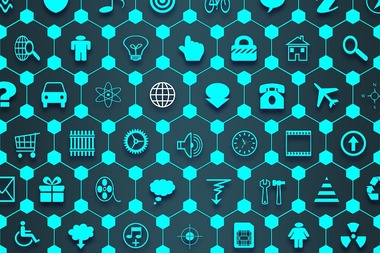 To began with it is relevant to know what many manufacturers and advertising agencies are telling us that the Internet of Things (IoT) is a must have technology that we cannot live without. I found a really good description in simple terms from Internetsociety.org to set the stage: "The Internet of Things is an emerging topic of technical, social, and economic significance. Consumer products, durable goods, cars and trucks, industrial and utility components, sensors, and other everyday objects are being combined with Internet connectivity and powerful data analytic capabilities that promise to transform the way we work, live, and play. Projections for the impact of IoT on the Internet and economy are impressive, with some anticipating as many as 100 billion connected IoT devices and a global economic impact of more than $11 trillion by 2025". But wait, there are more inherent risks than rewards in this must have and unnecessary technology. Despite the growing numbers of people buying IoT there are as many disconnecting from inter- connected devices. From RFID tags to your toaster talking to the refrigerator and thermostat IoT will fail in a giant bubble. Why? There are no standards and privacy and security are virtually non-existent. Already baby monitors, thermostats, garage doors, and vehicles have been hacked. IoT is a hackers paradise. And, all the time these devices are collecting data on you and targeting sales. So, before you invest in a personal assistant like Siri and others that are listening, do the research before buying into the hype! 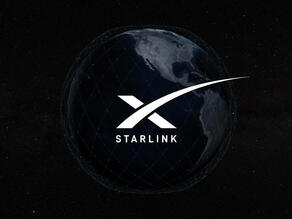 If you are not aware of what Starlink is, it is because the vision of Elon Musk of satellite internet for the whole planet is not being marketed like the "newest" digital technology of 5G, the eventual replacement of 4G. Unfortunately, 5G is a marketing event that really is not better than 4G. Because of its shorter millimeter wavelength it can't even penetrate buildings. It is an attempt to seem to provide a needed technology that costs more, still relies on cell towers, and limits rural locations from receiving internet. Starlink has already launched 200 low orbit satellites and is poised to begin limited operation this coming summer. The long term plan is to provide hundreds around the globe allowing everyone to have internet access. The recoverable rockets have already proven themselves ready for the task and within two years the cell-free towers will be a footnote and competition will be on a level playing field. The cost of service is not yet certain but I have heard that a tentative cost would be around $80 to $100 a month. But rather than getting into what that many satellites at low orbit will mean or "space junk" concerns I would recommend that you peruse the many articles on Starlink available and judge for yourselves if my trend prediction is realistic. I am looking forward to a much better condition for the many people who have to depend of companies like Comcast and others providing limited service and poor quality. 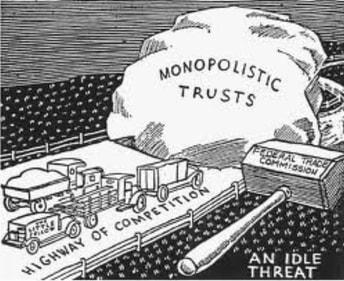 I typically don't stick my neck out to be separated from my body but here I go! I think that the trend is that the social media giants will be broken up, not because of the Sherman Antitrust Act but by the Clayton Act regarding mergers and acquisitions. But in order to understand my belief some history is in order. Last week, The Wall Street Journal reported that the FTC and Justice Department reached a new agreement, with the FTC gaining authority to review Amazon and Facebook, while the Justice Department is able to look into Apple and Google. This deal is seen as an early step in these agencies digging into potential anti competitive practices by all four companies. These corporate behemoths, which are all among the most valuable companies in the world, are now facing a much greater threat that they'll be broken up. Facebook could be forced to get rid of Instagram and WhatsApp, Amazon might divest Zappos, and Whole Foods and Google may lose YouTube, and Apple could part with its App Store. But, let's look at the two pivotal legislation at play: Sherman/Clayton Act: Passed in 1890, the Sherman Antitrust Act was the first major legislation passed to address oppressive business practices associated with cartels and oppressive monopolies. The Sherman Antitrust Act is a federal law prohibiting any contract, trust, or conspiracy in restraint of interstate or foreign trade. Even though the title of the act refers to trusts, the Sherman Antitrust Act actually has a much broader scope. It provides that no person shall monopolize, attempt to monopolize or conspire with another to monopolize interstate or foreign trade or commerce, regardless of the type of business. Penalties for violating the act can range from civil to criminal penalties; an individual violating these laws may be jailed for up to three years and fined up to $350,000 per violation. Corporations may be fined up to $10 million per violation. Like most laws, the Sherman Antitrust Act has been expanded by court rulings and other legislative amendments since its passage. One such amendment came in the form of the Clayton Act. The purpose of the Clayton Act was to give more enforcement teeth to the Sherman Antitrust Act. Passed in 1914, the Clayton Act regulates general practices that may be detrimental to fair competition. Some of these general practices regulated by the Clayton Act are, exclusive dealing contracts, tying agreements, or requirement contracts; mergers and acquisitions; and interlocking directorates. The Clayton Act is enforced by the Federal Trade Commission (FTC) and the Department of Justice (DOJ). Many of the provisions of the Clayton Act set out how the FTC or DOJ can respond to violations. Other parts of the Clayton Act are designed to proactively prevent anti-trust issues. So, with the public outcry and small startups, coupled with the "catch and kill" attitude of social media, the FTC and JD have a lot of pressure to act. Even though the FTC has allowed the mergers and acquisitions, they will have to reverse their rulings. And best of all the lobbyists on K street can't buy these agencies. My neck is at stake!  Every four years we go into a presidential election. The year 2020 will continue a very long term trend that hopefully will last a long time. And this run-up to the event has some of the same features as usual. Political speeches, polls, and the talk of division which is now called tribal. The various factions will be intractable in their allegiance to one party or another. But this cycle shows something new in that there is extreme polarization and irrational zeal for one side or the other. But consider for a moment that early Neanderthals formed tribes for mutual defense and survival. And they were divided as well with some wanting to hunt for natural vegetation, some for meat, and probably some for women as mates. And there was division. Some sought leadership, some followers, and there was some violent confrontation and fights for position. Sound familiar? And despite limited language skills there was some polling to judge who was showing leadership potential. Again, sound familiar? But we have taken poll information to a point where it is absolutely useless this early in the election cycle. The polls ask "who do you like and why"? Many people don't even know who is running as name recognition is still a problem. So for the next 6 months consider polling as too small a sample size, based on incomplete information, and not predicting any useful data. It seems like for every election we are faced with the decision as to who we like the least based on two candidates that we find difficult to really feel comfortable with. So, politics which is built on money that is corrupt and run by machinery that both parties use is frustrating at best. Then there is the worst Supreme Court decision on Citizens United. It is now easy for corporations to bankroll candidate that will support their business. And then there are the stump speeches that all candidates make that sound good until we realize that they can do none of what they promise without Congress. And of course with the Congress which is in a perpetual state of paralysis almost nothing will be done. The trend? More of the same until more people get serious about voting and seeing something and saying something! 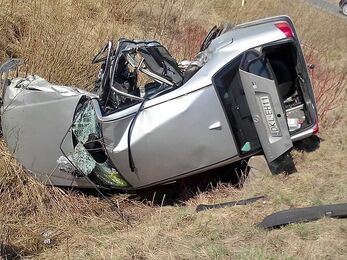 There are now more people dying in car accidents from distracted driving than from drunk driving, particularly teens, and that is not factoring in drugs in the states where cannabis is legal. The National Highway Traffic Safety Administration indicates that the trend is going up. Distractions are not just texting but include activities where your attention is focused on phone conversations, (even hands free), eating and drinking beverages, applying makeup, and any non-attention activities. It is sobering, (pun intended), to remember that a vehicle traveling at 55MPH will travel the length of football field in 5 seconds. The two most prevalent scenarios are hitting the guard rail and crossing the center line causing a head on collision. And now we have technology that can see two cars ahead, and detect when the lane has been crossed, and can make stops before you hit something like another car. But this allows drivers to assume that they are safer. But, at 55 the technology won't be effective and you will be meeting Jesus or the deity of your choice, and pay the price of an accident. The all to frequent "It can't happen to me" mantra is false reasoning. It is not like the lottery where the odds are in the millions; but with heavy traffic, the odds are much more likely to be even. The responsibility to be aware is ours and technology will not prevent these needless deaths.  The trend which has been encouraged and used so frequently during television network news," breaking news" is becoming rather useless and actually it's becoming annoying. It really doesn't have anything to do with whether the news is actually breaking but more about keeping people glued to the TV set so that they can watch more commercials and please the marketing people. A good example is the caravan that is traveling from South America to the United States border. Each night when they stop to rest and sleep it becomes breaking news. Well surprise surprise that isn't breaking news! Unfortunately when we become exposed to the same term that begins to lose its meaning we tend to ignore it. Even though it may really be breaking news we fail to respond appropriately. Some newscasts have now begun to morph the term into "developing news" in order to accomplish the same end but without the redundancy. There was a time during news broadcasts that they would actually interrupt the current program to bring real "breaking news". When that happened you actually realized that there were events that were breaking that were really significant and important to know at the time. My best guess at the current moment is that the term will continue to be used indiscriminately and simply continue to confuse people about what to expect. At some point in time we will ignore the term completely and change channels to where more breaking news occurs. Meanwhile, I have to get back to the television because I noticed that there was just a breaking news summary and I can't possibly miss it and the commercials that will accompany it. 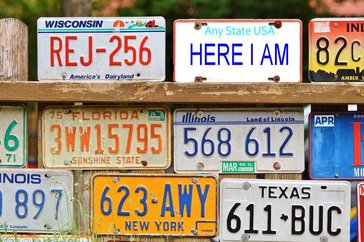 We are all familiar with the standard license plate for cars as it is a simple metal plate that fits all cars and is fairly easy to upgrade each year with online State services. It has been the standard for years and is the most simple of all things related to motor vehicles. But, that is changing and like all new cars, it is a digital mess that frequently cannot be repaired by the home mechanic. Welcome to the world of the digital license plate! Although it is the a bit heavier it will fit the standard bolt configuration but that is where the similarity ends. The new plate can display messages, and locate stolen vehicles. Wait! If it can know its location it will know where you are, how fast your going, and probably your motor vehicle history. No privacy issues here! There are 100,000 being released in California and it is legal in California, Texas, Florida, and Arizona, and the company expects Pennsylvania, Nevada, Maryland, and Washington next. At this point it is an option but we all know that it will eventually be mandated. I have not yet seen the technical details but GPS is an option and it has a battery which means that it is sending data. The cost is also interesting. $599.00 and an 8 dollar a month subscription fee. It makes it easier for the MV department but bad for the driver. Another dubious trend. There is a link for the manufacturer here. The hackers with the black hats will love this technology! 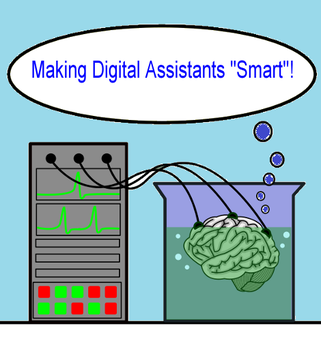 The use of digital assistants has continued to expand over the past few years with better algorithms and increased databases. Whether it is Amazon's Alexa, Google Assistant, Apple Siri and Microsoft Cortana or a device that is generally called part of the Internet of Things, (IoT), they are fairly simple in their ability to provide information that could be considered artificial intelligence or a neural network. They are learning preferences but of course they are gathering data as well. That is called marketing! In 2012 I posted my own experience with a digital assistant that I had already used for about 5 years. Here. It was capable of communicating with the user but was frequently parroting what was said or typed in the text box. But, it was clever and could remember dates, phone numbers, and send reminders for appointments. There is an update for that system and a link there will get to that assistant. But none of the current home devices can be considered "smart" in the sense that they could pass the Turing test and react like another human. But the reality that this is the direction and trend going forward. The goal as I see it is for these devices to have context and empathy as part of their function. When they can parse out the meaning of comments then we can call them smart. Until then, they will turn on lights, thermostats, and order your favorite shampoo! And, of course, gather data and be prone to security problems! 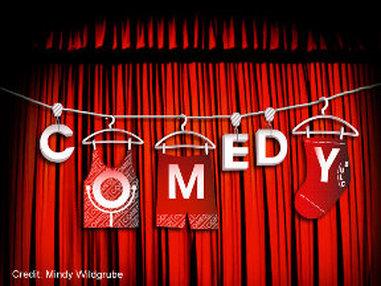 Many comedians have used current news as fodder for satire and entertainment but there is a new trend that is a blend of satire and some news opinion that sounds like news. A good example was the Daily show with Jon Stewart. Most viewers recognized the content as either satire or opinion but many others thought that it was a source of real news. But, the trend seems to be spreading to other popular late night shows as well. If you watch either the Late Show with Steven Colbert or the Jimmy Kimmel show live or on YouTube it may sound like a recap of the day's news. But, it is comedy, and satire; not news! It is becoming much more difficult to get accurate and non-skewed information as demonstrated by the number of people who get their news from social media like Facebook and Twitter. The algorithms that they use are designed to place the most watched items at the top of feeds. Even Google has the same problem and the highest ranked stories may be inaccurate. So how do we get good information? It depends on what we want. If we don't drill down to find accuracy we are left with members of congress not answering questions and talking in circles to talk shows that are highly partisan. The 24 hour news cycle has forced "journalists" to push news out before it is completely vetted. The sad reality is that we as a technologically advanced nation are struggling to find out what is really happening. |
Archives
June 2021
Categories
All
|